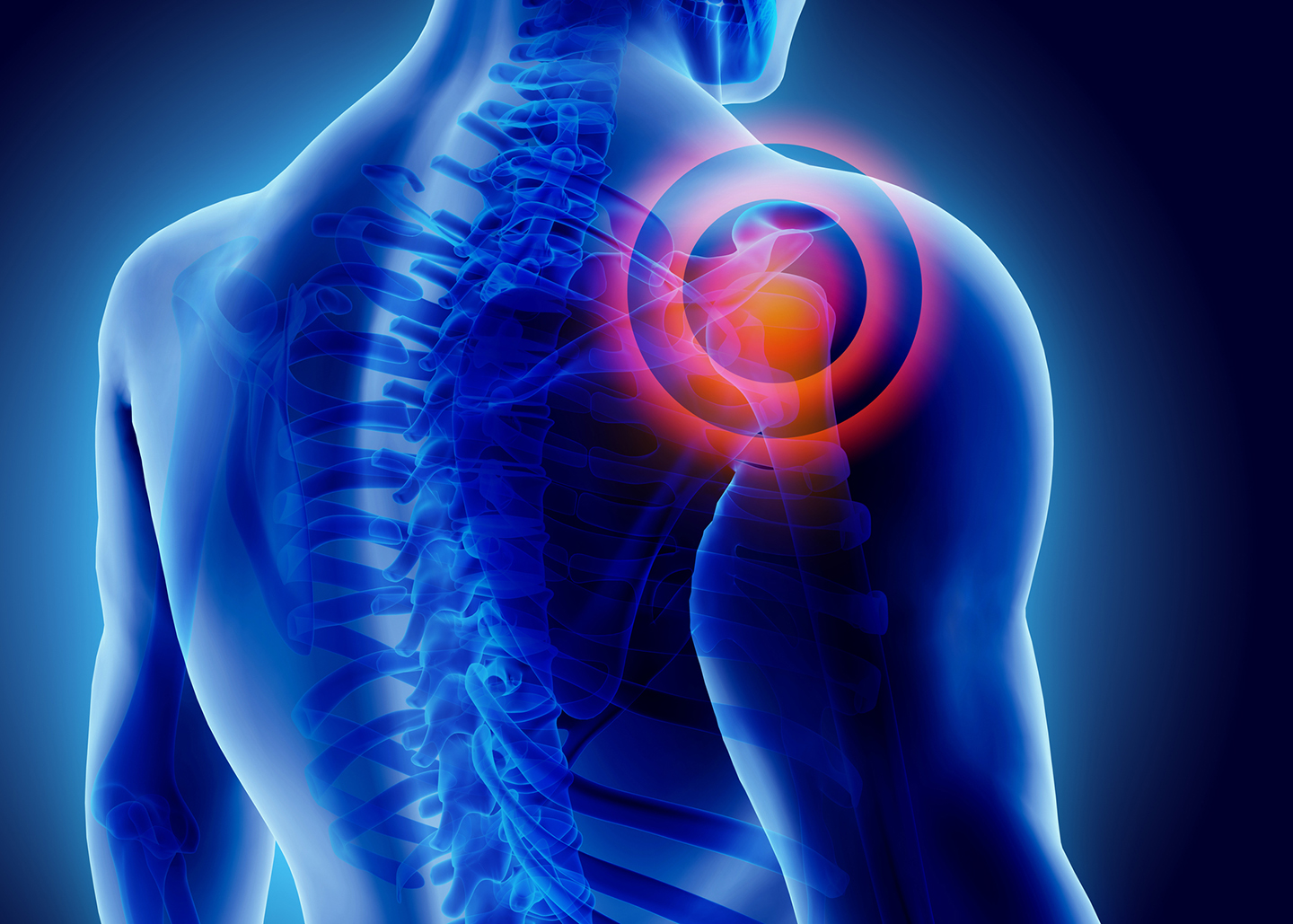Frozen Shoulder

Frozen Shoulder is a condition that affects your shoulder joint and is characterized bypain and stiffness causing hindrance in its proper movement. It gets worse over a period of time and ultimately leads to freezing of one’s shoulder joint. The anatomy of a human shoulder constitutes ofthree bones that form a ball and socket joint and is surrounded by shoulder capsule that holds all of these bones together. Frozen shoulder occurs when this capsule thickens and tightens limiting motion of the shoulders.
Although there is still much debate about why this occurs in some people, doctors suggest that diabetic patients, people with thyroid disease and patients recovering from surgery and paralysis patients who are not allowed much movement of their hands are more likely to suffer from this condition. In certain instances, frozen shoulder can also be a result of trauma from unanticipated movements that generates problems in your muscles and ligaments. People who get affected by this are normally athletes of karate, taekwondo, basketball and in general people that perform fast and sudden movements in their daily activities. In cases as such, the frozen shoulder is a condition from capsulitis but the pain that develops with growing age specially seen on people over the age of 45 is known as degenerative changes or periarthritis.
Symptoms
Primarily, frozen shoulder can be depicted through pain in your shoulder joints and difficulty in its movement. However, if you have frozen shoulders then you will suffer from three stages and each of them have their distinct timetable and symptoms.
First Stage: This is a painful periodand can last up to 6 to 9 months and is indicated by pain in your shoulders that restricts regular movements and gets worse over time. The pain can sometimes get severe and the motion is slowly lost over time.
Second Stage: It lasts from 4 to 6 months and if left untreated, the stiffness in your shoulder gets worse and progresses even though the pain mightgo away. The muscles become firm making it difficult to perform day to day activities and also limits passive movements leading your shoulder to be completely frozen.
Third Stage:There is possibility of curing this condition in this stage specially in the case of capsulitis but degenerative changes possess no cure, only temporary reliefs. Patients with trauma from sudden movements can also be cured through different medications and therapies.
Diagnosis
Froen Shoulder is primarily diagnosed through a physical examination taking in attributes such as pain and difficulty in movement. If limited range of motion is seen with complications in both active and passive movement, then they are considered to be suffering from frozen shoulder. The patients clinical background, history is also taken into account and various lab tests are conducted for a proper confirmation. A CT Scan, X-Ray or MRI is also performed to verify the diagnosis but it is hardly required in such situations. Since patients with a history of diabetes, thyroid and heart diseases are more liable to suffer from this condition, any kind of pain in their shoulder is reviewed and tested for the case of frozen shoulder.
Treatments
Modern medical science has failed to find any long-term cure for frozen shoulders and while the occasional painkiller, muscle relaxers and calcium are provided for strains, they are only for short-term assistance. Another treatment available is injecting sterile water to stretch the capsule which helps you move your shoulder more easily. Shoulder manipulation is also a technique, although less preferred due to complication like fractures is also used where the shoulder is forcefully moved 360 degree under general anesthesia.
Despite all these treatments, the best and long-term cure for frozen shoulder comprises of treatments through natural therapies and physiotherapies. These therapies help to alleviate your health problems in the long run and focus on non-artificiality and balance. Similar to its various stages of symptoms, the treatment of frozen shoulder is also done in three phases.
First phase: In terms of modern medical techniques, the treatment is initiated with a dose of painkillers but in natural therapy, acupuncture is preferred where fine needles are inserted into the trigger points of the muscles to restore their normal function. This has proved to be very effective and bring concrete results. Similarly, frozen shoulder conditions from sudden capsulitis are also treated through cold or hot compression depending on the cases.
Second phase: In this stage, physiotherapy is considered the ideal treatment and is initiated to increase the movement of the joints through passive exercises with the help of a physiotherapist. However, it is equally important that patients take active role in helping their muscles move for better results.
Third phase: The treatment of this stage can be easily performed at home if patients are keener to bring effective results and performactive exercises related to shoulder movementson a daily basis. Although, treatments like natural therapy and physiotherapy is a lengthy process, it requires patience to be effective. People can also gravitate towards isometric exercises, continue healthy dietary habits to balance their heart health and do regular exercise in order to prevent degenerative changes in their muscles strength.


